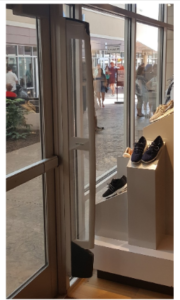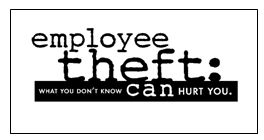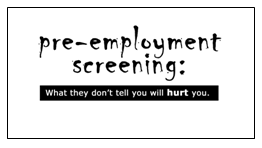 Loss Prevention is a wonderful career choice that can lead to other positions in retail. There are, however tips I wish I had known before I began the job that would have prepared me for the adventure I was about to embark on. I started out in a Loss Prevention Associate position after spending four years as a U.S. Air Force Law Enforcement Specialist and another 2 ½ years earning a Bachelor’s Degree. I was offered the position and to be honest I went into it with the mindset that this was a Law Enforcement position in civilian clothing. There was nothing that really dissuaded me from the notion as I was taught to catch shoplifters, use closed circuit television cameras and electronic article surveillance equipment. I assisted with employee theft cases but these were few and far between. It was not until later when I had been a Loss Prevention Manager for several years before I started to understand the real role of Loss Prevention in a store. With this is mind there are some things that I would like share with those entering the profession that can be eye opening and prepare them for the job ahead.
Loss Prevention is a wonderful career choice that can lead to other positions in retail. There are, however tips I wish I had known before I began the job that would have prepared me for the adventure I was about to embark on. I started out in a Loss Prevention Associate position after spending four years as a U.S. Air Force Law Enforcement Specialist and another 2 ½ years earning a Bachelor’s Degree. I was offered the position and to be honest I went into it with the mindset that this was a Law Enforcement position in civilian clothing. There was nothing that really dissuaded me from the notion as I was taught to catch shoplifters, use closed circuit television cameras and electronic article surveillance equipment. I assisted with employee theft cases but these were few and far between. It was not until later when I had been a Loss Prevention Manager for several years before I started to understand the real role of Loss Prevention in a store. With this is mind there are some things that I would like share with those entering the profession that can be eye opening and prepare them for the job ahead.
- You are not the retail police – Unfortunately it is easy to fall into the trap of believing you are an arm of the police department. You aren’t. You can and should build strong partnerships with police but you are not protecting the community. Your job is to make your store profitable. You need to learn about stock shortage and all of the ways it happens. Yes, you need to learn to identify, prevent and maybe catch shoplifters. You also need to add to that knowledge how employee theft occurs, how to identify it and investigate it. You also need to understand vendor processes, how to read invoices and credits. You should spend time learning and stocking freight and where operational shortage takes place. Become intimately familiar with cashiering procedures and cash office functions. Each of these areas of responsibility impact store profits and the more you know the better you become at multiple areas of the store.
- Hiring and Supervision – You may only be starting as a Loss Prevention Associate but if you are smart you will partner with the hiring manager. Ask to be part of the store application review process. Learn to look for the red flags on a candidate’s application or resume that could spell trouble if that person is hired. You can be a valuable partner in helping in the hiring process. As a Loss Prevention Manager you will review applications, resumes and conduct the interviews. You will need to know your company’s hiring process and whether it includes a drug test or background check. While we are discussing it lets also talk about who you decide to hire. Hire people with skill sets that are different from yours. While I would not discourage you from hiring someone with Loss Prevention experience be mindful that that candidate may be more difficult to train. They will bring along training from other retailers that may not be in keeping with your store best practices.
- Trainer and Leader – Get ready to train others and not just Loss Prevention personnel. You will be training store associates on electronic article surveillance alarm response. You will train cashiers on till tap and short change artist prevention. You will train employees on robbery procedures. You may work with the stock team on how to identify mis-shipped merchandise. Show them how improper stocking affects shortage and inaccurate merchandise reordering. You could be required to conduct new hire orientations. You will also instill in the whole team the importance of customer service as a means of reducing theft but also how it drives sales. As a leader you will request appointments to meet with other managers and discuss operational matters. The more informed you are in how things work the better prepared you can be to help improve operational procedures.
Clearly there is much more that a Loss Prevention professional can add to the store than just being a person who catches shoplifters.
The core roles and responsibilities of the Loss Prevention team entail the reduction of retail shrinkage and even maintaining a safe shopping environment. You may not be a first responder but you could be the first person called to an accident inside or outside the store. Frequently it is the Loss Prevention personnel who are first called to find a lost car, lost child or stolen purse. You will be the one who has to calm an irate customer. Learn from these tips I am sharing. You aren’t going to be a police officer, you are going to be a Retail Loss Prevention Professional and that is a quite a job!
 We are excited to announce our partnership with Johnson Controls/Sensormatic. Sensormatic is one of the oldest and largest Electronic Article Surveillance (EAS) manufactures in the world. Loss Prevention Systems has deep loss prevention and EAS experience.
We are excited to announce our partnership with Johnson Controls/Sensormatic. Sensormatic is one of the oldest and largest Electronic Article Surveillance (EAS) manufactures in the world. Loss Prevention Systems has deep loss prevention and EAS experience. Pricing is also a factor. Sensormatic line of systems will fit a wide range of budgets depending on the features you select. We also have people counting, and data reporting. This gives the Retailer important intelligence on customer traffic and flow. We have seen many of our customer’s significantly reduce expenses in both payroll and operating costs by having this data. Store hours can be adjusted and you can adjust staffing to fit the real world.
Pricing is also a factor. Sensormatic line of systems will fit a wide range of budgets depending on the features you select. We also have people counting, and data reporting. This gives the Retailer important intelligence on customer traffic and flow. We have seen many of our customer’s significantly reduce expenses in both payroll and operating costs by having this data. Store hours can be adjusted and you can adjust staffing to fit the real world. 




 mbat and punish shoplifting and employee theft.
mbat and punish shoplifting and employee theft.